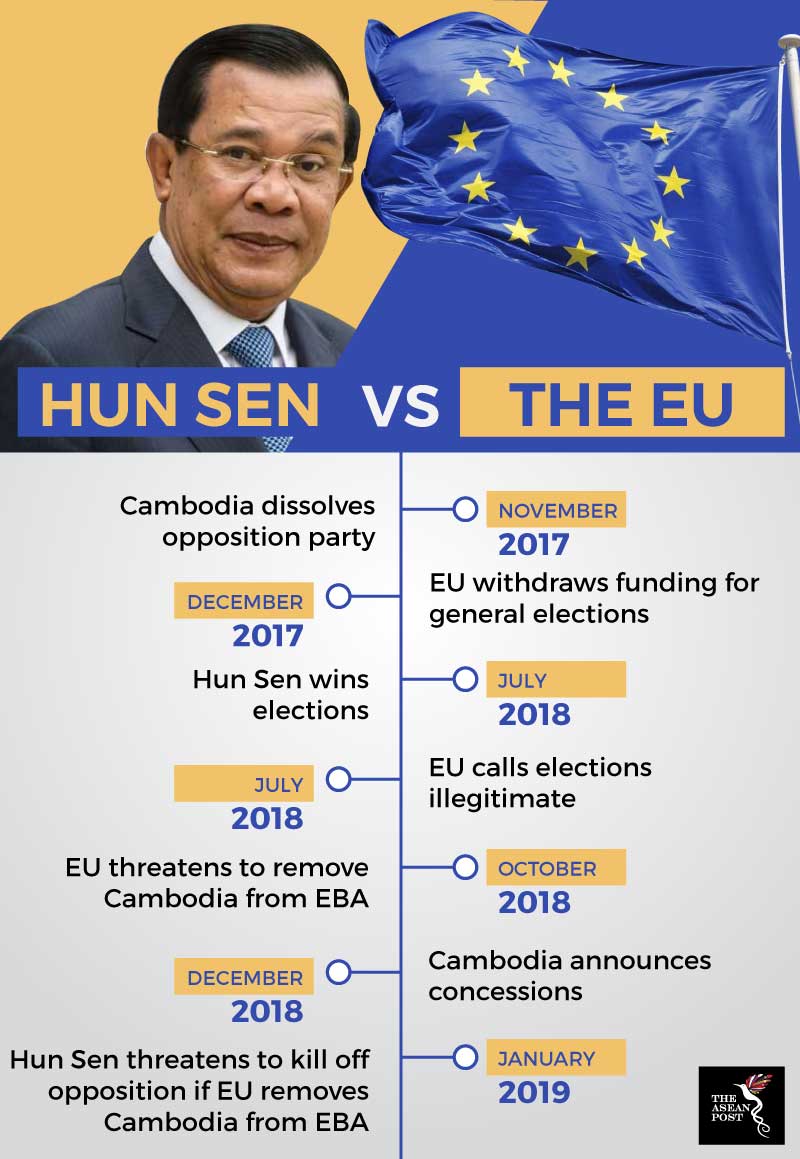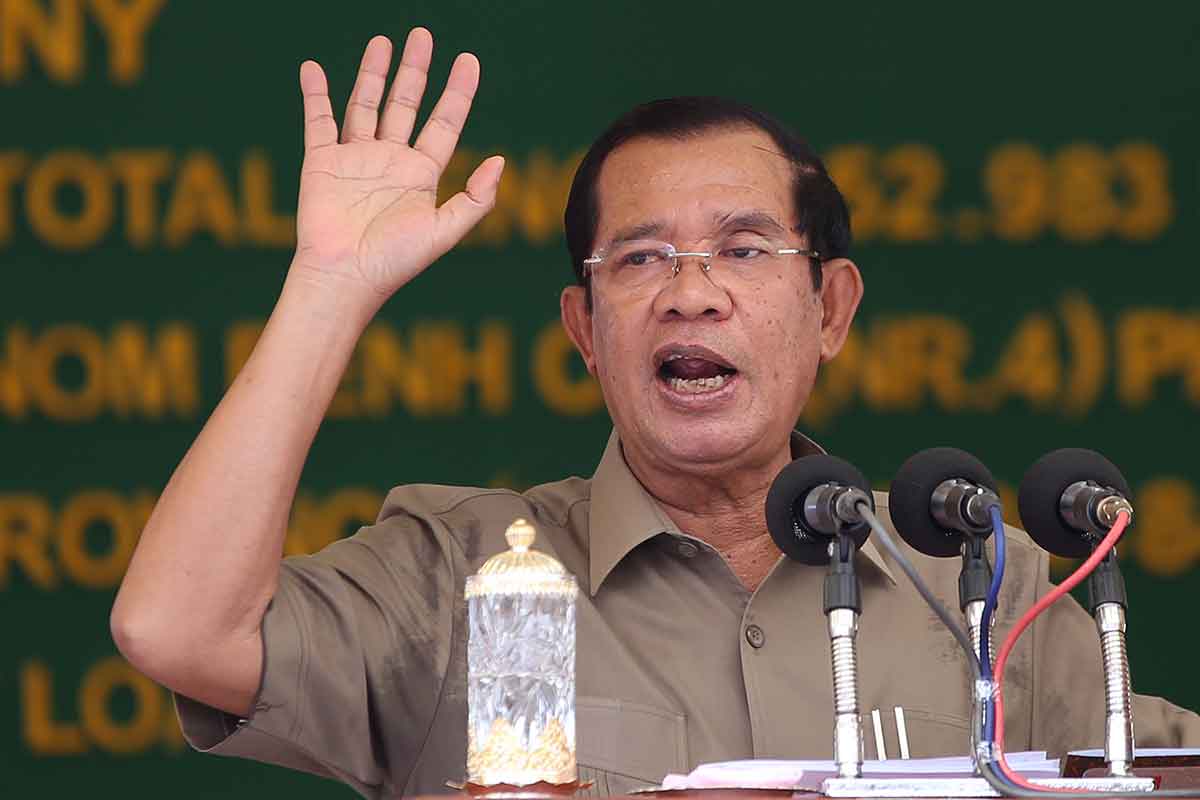Cambodian Prime Minister Hun Sen’s battle with the European Union (EU) intensified this week after he threatened to act out against the country’s opposition should the EU follow through with its proposed withdrawal of trade benefits.
Cambodia is part of the EU’s Everything But Arms (EBA) initiative which aims to increase development in the world’s poorest countries. Under the EBA, Cambodia enjoys duty-free and quota-free exports to countries in the EU. The EU is one of Cambodia’s main destinations for the country’s garment industry which contributes around 40 percent to its gross domestic product (GDP). Currently, the EU is by far Cambodia’s largest trading partner, bringing in US$6 billion in revenue for the country.
In October, the EU announced that it will begin a eighteen-month review of Cambodia’s EBA status. This decision comes after Hun Sen’s dubious victory in the general elections held in July. Hun Sen managed to secure his victory amid a political crackdown which saw the dissolution of the Cambodian National Rescue Party (CNRP), the arrest and prolonged detention of the CNRP’s leader, Kem Sokha, and the banning from political activity for five years of 118 senior CNRP members. In a statement, the EU Foreign Affairs Council had deemed the elections as “not legitimate”.
 Source: Various
Source: Various
Defiant Hun Sen
Despite these threats to Cambodia’s economy, Hun Sen remains unfazed. In response to the EU’s actions, Hun Sen retaliated with a threat of his own. "If you want the opposition dead, just cut it," Hun Sen said in a speech at the inauguration of a ring road around Phnom Penh.
"If you want the opposition alive, don't do it and come and hold talks together," he said.
Whether these threats are real or merely Hun Sen calling their bluff is unclear, however, his statement certainly is worrying.
This is not Hun Sen’s first time lashing out against Western powers. Hun Sen has accused them for pushing "democracy and human rights" on Cambodia in the past. However, as of late, he has been more explicit in his anger. Earlier this week, he accused the EU of holding Cambodians hostage with the threat of withholding economic benefits.
The feud between the EU and Hun Sen actually goes back to 2017. In December 2017, the EU announced that it would not fund the Cambodian general elections after the dissolution of the CNRP as it did “not believe there is a possibility of a credible electoral process”.
While Hun Sen continues to make strong remarks against the EU in the media, the EU’s methods seem to be working.
In contrast to his remarks to the media, last month, the government said that banned opposition members may be allowed back into political life and shuttered media outlets could reopen. Though, whether this is enough to allay the EU’s fears of human rights abuses in the country is uncertain.
Does Cambodia need the EU?
Rhetoric or not, Hun Sen’s threats of leaving the opposition “dead” should the EU withdraw trade benefits have to be taken seriously as this could very well be the case.
Without the EU, Cambodia will likely maintain strong ties with their other trading partners. Numbers from 2017 reveal that Cambodian exports to Japan grew by 4.5 percent in the first half of the year and exports to China grew by 18 percent compared to 2016. Canada and the rest of ASEAN also maintain trade ties with Cambodia. So, there is the possibility that Hun Sen could just continue with his authoritarian rule while ditching the EU’s trade benefits.
On the other hand, it is just as possible that once the EU withdraws Cambodia from the EBA, other countries could follow suit and reassess their trade relations with the country.
Hopefully, the threat of losing US$6 billion from the economy and the potential harm it would cause to the garment industry is enough for Hun Sen to seriously consider carrying out some political reforms. The flip side could instead see him tightening his grip on Cambodia and its citizens having to bear the painful costs.
Related articles:
